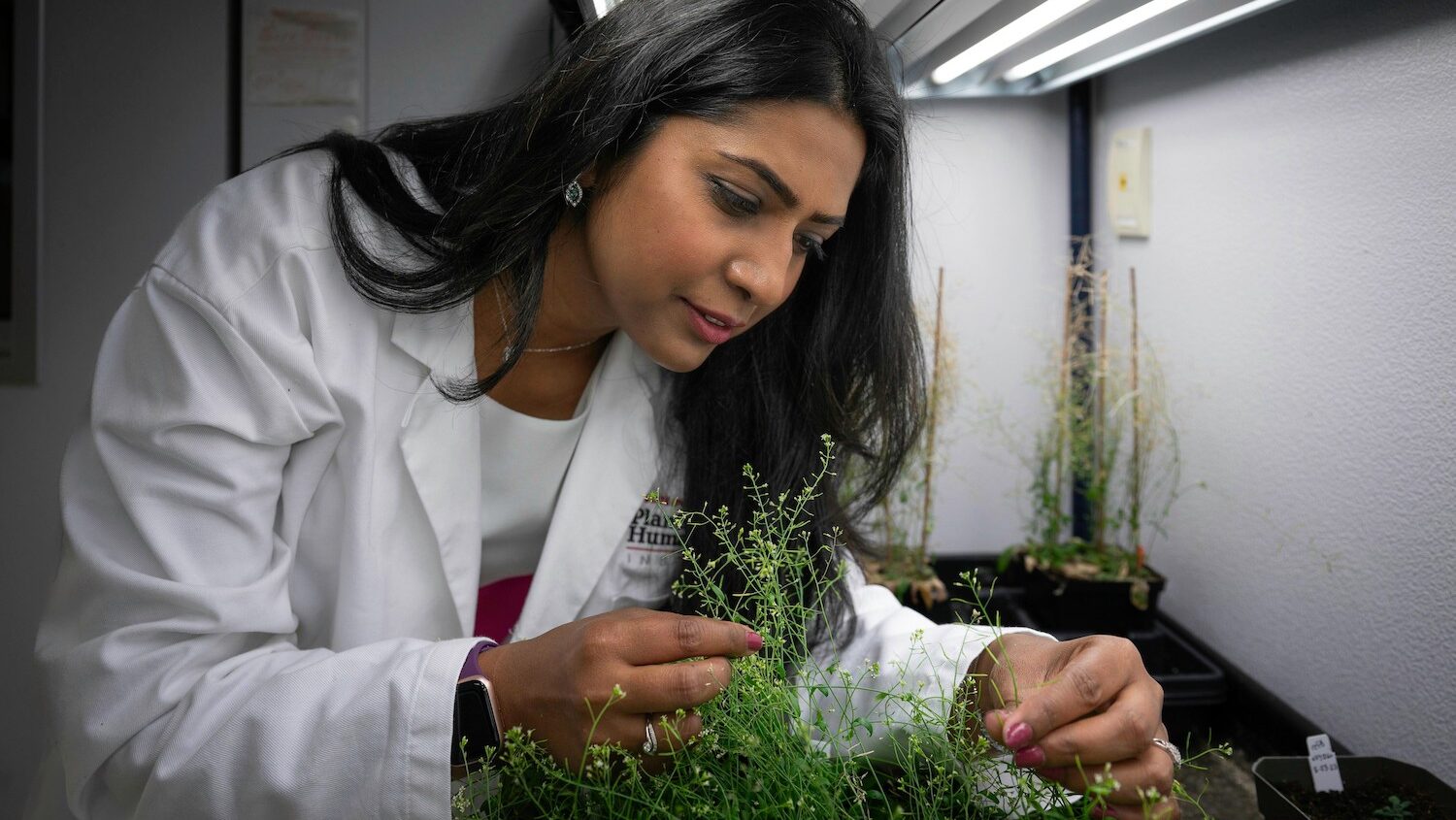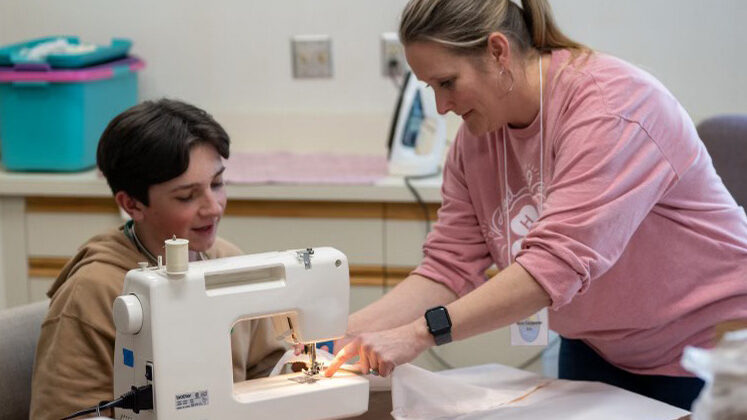Adventures in Life Sciences
CALS life sciences alumni are finding—and even creating—their dream careers, from labs to zoos, in human health and data science, in rural and urban settings.

Life scientists are some of the most inventive people around. They’ve mastered specialized tools and technologies, and they’ve developed professional skills like teamwork, leadership and communication as they seek—and even create—their dream jobs.
Barbara Durrant, for example, built her wild and wonderful career with the San Diego Zoo Wildlife Alliance using degrees in animal science, physiology and reproductive physiology from North Carolina State University’s College of Agriculture and Life Sciences (CALS).
CALS researchers take a life sciences approach to tackling the grand challenges of food security and sustainability, working hand in hand with agriculture.
“We need to be responsible in understanding what we’re doing in the plant, with the animal, in the environment,” says Amy Grunden, assistant director of the North Carolina Agricultural Research Service (NCARS). “You gain that understanding through a life sciences perspective.”
A Competitive Advantage
Proximity to Research Triangle Park, the largest U.S. research park, gives CALS life sciences students opportunities to study, network, intern and collaborate with global companies, starting as undergraduates.
“I herald it as much as I can, because it gives us a competitive advantage,” says Steve Lommel, CALS associate dean and NCARS director. “A lot of our graduates end up in those companies.”
Graduates also pursue academic research, become entrepreneurs, work in non-governmental organizations, and go on to medical school and health careers.
Many more life sciences graduates are needed. “Nationwide, there’s a deficit of 40,000 master’s and Ph.D. graduates a year in the plant sciences,” says Lommel, a board member with the North Carolina Biotechnology Center (NCBiotech).
Demand is strong for NC State alumni like Kristen Eads, whose Master of Microbial Biotechnology (MMB) degree equipped her to lead pharmaceutical programs for patients with rare diseases. The MMB’s scientific and business coursework opens doors to marketing and management. Ninety-three percent of MMB graduates are employed within three months, earning an average salary of $91,949 within six months.
Beyond RTP, Paul Ulanch, a senior director with NCBiotech, sees advantages from state investment in the North Carolina Research Campus in Kannapolis. “That campus is starting to see interesting collaborations, with a lot being led by NC State. Great examples are the Food Innovation Lab and Plants for Human Health Institute.”
Alumna Chinmayee Panda, who worked at the institute as she earned a Ph.D. in microbiology and genetics, landed a research job in Kannapolis with a nutritional supplement company.
Life sciences hubs are growing statewide, from Asheville to Wilmington. State economic development officials work with community development experts from N.C. Cooperative Extension in all 100 counties and with the Eastern Band of Cherokee.
Ever-Evolving Life Sciences
With constant change, including a “tsunami of biotechnology,” as Lommel puts it, the life sciences sector is evolving rapidly. To help meet the growing demand for big data analytics and regulatory knowledge, CALS created new certificate programs.
Alumna Shelly Hunt was among the first to earn an Agriculture Data Science Certificate, along with a master’s in biological engineering. Immediately after graduation, she landed a job with the agriculture division of analytics giant SAS.
For Hunt, it adds up to a promising start in a field where she can choose her own adventure.
Test your Life Sciences Knowledge
How many life sciences companies are in North Carolina?
North Carolina is home to 810 life sciences companies, plus 2,500 companies that support or are related to life sciences, according to the North Carolina Biotechnology Center.
The average salary for a life sciences job in North Carolina is:
The average salary for a life sciences job in North Carolina is $112,000, nearly twice the pay earned by other private-sector workers statewide, according to the North Carolina Biotechnology Center.
True or false: Life sciences jobs in North Carolina are growing at a faster rate than private sector jobs overall.
True. Since 2018, life sciences employment in the state grew by 13%, compared to just 3% in the overall private sector, according to the 2022 TEConomy Report.
Where does North Carolina’s Research Triangle Park rank nationally in life sciences activity?
Research Triangle Park is No. 4 in life sciences activity, behind hubs in Boston, San Francisco and San Diego, according to Fierce Biotech’s rankings.
Which master’s degree program in NC State’s College of Agriculture and Life Sciences (CALS) has a 93% job placement rate three months after graduation?
The Master of Microbial Biotechnology program has a 93% placement rate three months after graduation. Within six months after graduation, MMB alumni salaries average over $91,000. The MMB program offers both scientific and business coursework, as well as an optional MMB/MBA degree through a partnership with NC State’s Poole College of Management.
Alumna Shelly Hunt, now an agricultural analyst, was one of the first to complete a new certificate program from NC State's College of Agriculture and Life Sciences. Which one did she choose?
Agriculture Data Science (graduate certificate). CALS offers all four of these certificate programs, but Shelly says, "Data science is the future of agriculture."
- Categories:


